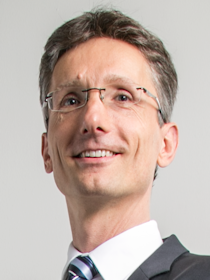Physical Internet en de kansen voor duurzamere logistiek van e-commerce

Het Physical Internet (PI) is een toekomstvisie op geheel open en verbonden logistieke netwerken, waarbij fysieke, digitale, operationele en financiële verbondenheid centraal staan. Uitwisseling tussen logistieke partijen, bundeling van bezorgingen en het delen van opslag- en transportcapaciteit bieden kansen voor een efficiëntere en duurzamere logistiek van e-commerce.
Kees Jan Roodbergen, hoogleraar Kwantitatieve Logistiek, onderzoekt de komende jaren samen met zijn collega’s Paul Buijs en Iris Vis welke rol micro-hubs daarin kunnen spelen. Dat zijn kleinschalige logistieke operaties op vaste locaties met een klein geografisch verzorgingsgebied, zoals een stadskern, woonwijk of straat. Samen met de partners Districon, ViaTim, Cycloon/Fietskoeriers.nl, Wehkamp, DHL, Centric, IMCC, Dropper en ZUPR kreeg hij daarvoor 500.000 euro van TKI Dinalog. Het onderzoek richt zich op drie onderdelen: de buurtbewoner als pakketbezorger; gecombineerde logistiek voor winkels en webwinkels; en de rol van fietskoeriers in steden.
Buurtbewoner als pakketbezorger
Het kleinste type micro-hub is de street-hub. Dit is een verdeelpunt voor pakketten, dat in een woonhuis kan zijn gevestigd. ViaTim is een start-up die street-hubs aan het opzetten is. Pakketten van webwinkels zoals wehkamp.nl worden daar door DHL bezorgd. De street-hub vormt in de huidige logistieke structuur een extra schakel. Maar de street-hub bespaart ook stops en kilometers van bestelbusjes.
Gecombineerde logistiek voor winkels en webwinkels
De logistiek van winkels en webwinkels is nu vaak nog gescheiden. Integratie biedt mogelijkheden, bijvoorbeeld voor bezorging van online bestellingen vanuit winkels, of snellere belevering van winkels. Deze integratie maakt van winkels feitelijk micro-hubs zoals bedoeld in het Physical Internet. Districon, Centric, IMCC en ZUPR willen de logistiek voor online en offline productverkoop dichter bij elkaar brengen.
Fietskoeriers
Er verschijnen steeds meer fietskoeriers in steden. Deze fietskoeriers werken vanuit een city-hub vanaf waar zij het laatste segment van de bezorging overnemen op milieuvriendelijke wijze. Met Cycloon/Fietskoeriers.nl en Dropper worden de mogelijkheden onderzocht voor fietskoeriers in PI-gebaseerde netwerken.
Meer informatie
- Contact: Kees Jan Roodbergen, hoogleraar Kwantitatieve Logistiek
- Zie ook de uitgebreide projectbeschrijving: PIONEER: Physical Internet, an Outlook on Neighborhood and Environment for E-commerce Retail
________________________________________________
> Meer nieuws van de Faculteit Economie en Bedrijfskunde
> FEB-experts in de media


| Laatst gewijzigd: | 29 februari 2024 10:02 |
Meer nieuws
-
12 april 2024
Oratie Corine Noordhoff: Future ready retail
Tijdens haar oratie zal Corine Noordhoff inzichten verschaffen in de fundamentele elementen om te overleven en je bedrijf aan te passen in de retailsector. Noordhoffs oratie vindt plaats op vrijdag 19 april 2024, 16:15 – 17:00, in de aula van het...
-
09 april 2024
New issue FEB Research Newsletter
We are proud to present the spring 2024 edition of the FEB Research Newsletter.
-
08 april 2024
Nieuwe essayreeks: Duurzaamheidsverslaggeving na de CSRD
De eerste editie is uit van de gratis essayreeks van UGBS over duurzaamheidsverslaggeving sinds de CSRD. Met tips voor ondernemers. Abonneer om op de hoogte te blijven van nieuwe edities.
